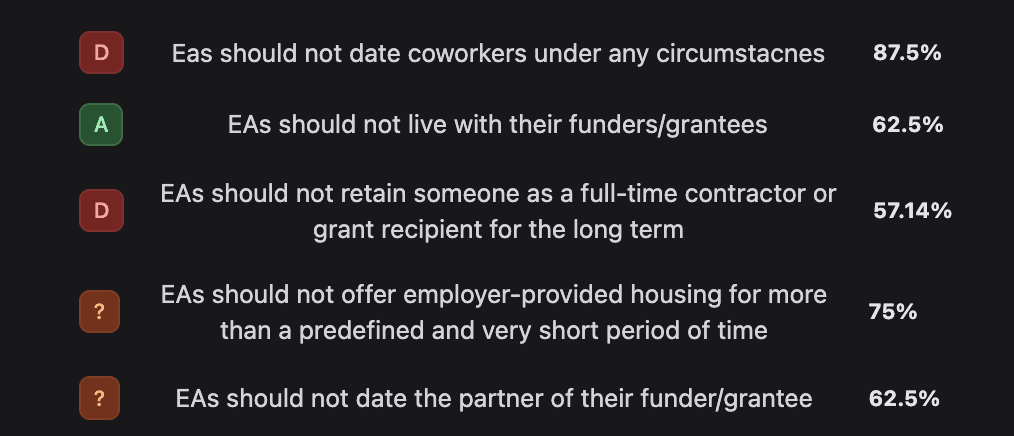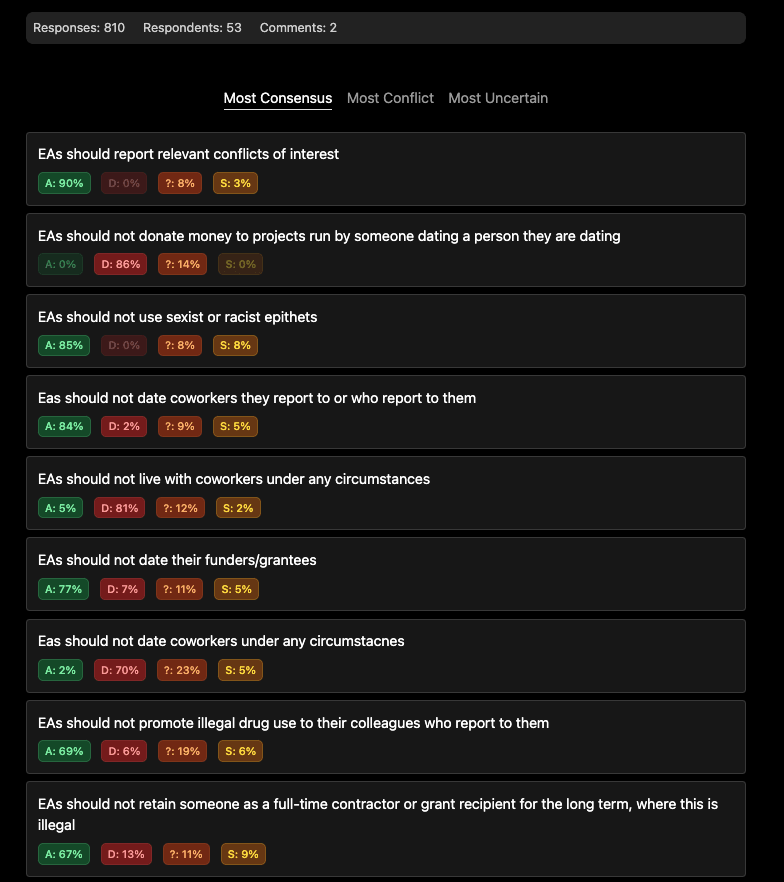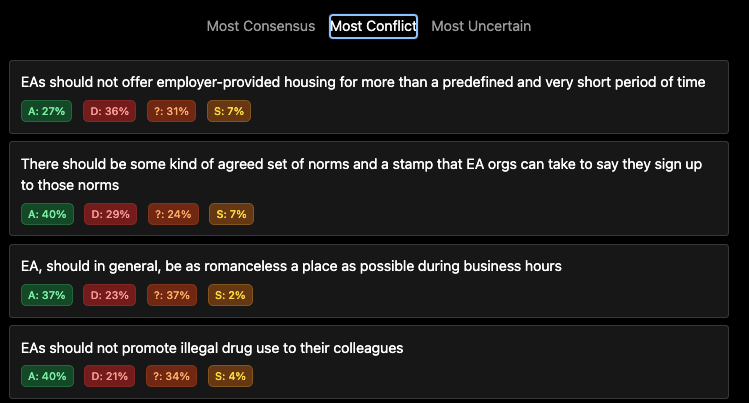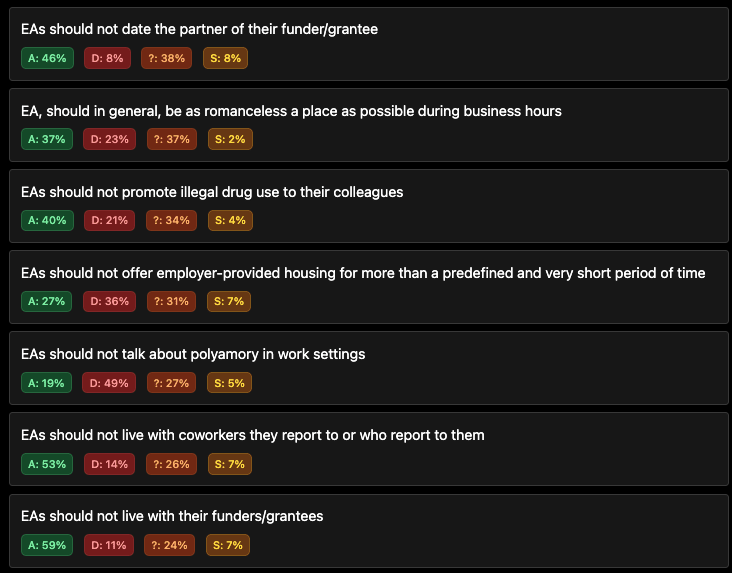There has already been ample discussion of what norms and taboos should exist in the EA community, especially over the past ten months. Below, I'm sharing an incomplete list of actions and dynamics I would strongly encourage EAs and EA organizations to either strictly avoid or treat as warranting a serious—and possibly ongoing—risk analysis.
I believe there is a reasonable risk should EAs:
- Live with coworkers, especially when there is a power differential and especially when there is a direct report relationship
- Date coworkers, especially when there is a power differential and especially when there is a direct report relationship
- Promote[1] drug use among coworkers, including legal drugs, and including alcohol and stimulants
- Live with their funders/grantees, especially when substantial conflict-of-interest mechanisms are not active
- Date their funders/grantees, especially when substantial conflict-of-interest mechanisms are not active
- Date the partner of their funder/grantee, especially when substantial conflict-of-interest mechanisms are not active
- Retain someone as a full-time contractor or grant recipient for the long term, especially when it might not adhere to legal guidelines
- Offer employer-provided housing for more than a predefined and very short period of time, thereby making an employee’s housing dependent on their continued employment and allowing an employer access to an employee’s personal living space
Potentially more controversial, two aspects of the community I believe have substantial downsides that the community has insufficiently discussed or addressed:
- EA™ Group Houses and the branding of private, personal spaces as “EA”
- "Work trials" that require interruption of regular employment to complete, such that those currently employed full-time must leave their existing job to be considered for a prospective job
As said, this list is far from complete and I imagine people may disagree with portions of it. I’m hoping to stake this as a position held by some EAs and I’m hoping this post can serve as a prompt for further discussion and assessment.
- ^
“Promote” is an ambiguous term here. I think this is true to life in that one person’s enthusiastic endorsement of a drug is another person’s peer pressure.





I wouldn't be that much more confident in the Supreme Court justices in the US. In the US, constitutional law, and the federal judiciary are highly politicized. The most visible and attention-grabbing parts of the job involve figuring out how to use the constitution and legal precedent to advance the policy goals of the Democrat or Republican party (or maybe your own idiosyncratic moral and political goals), whilst pretending, to yourself and others, that you are a neutral arbiter who is just applying the law.* This is why who gets appointed to the Supreme Court in the US has been so politicized since the late 80s, at an absolute minimum. (It's not a case of nasty right-wing populists appointing hacks and liberals appointing neutral professionals either, as far as I can tell.)
More generally, it's always easy to look at big important institutions and conclude "that's where the sensible, competent adults are". But nearly everyone who sees these institutions close up, seems to end up somewhat disabused of that belief. An acquaintance of mine who is a top Scottish civil servant told me they once had major problems in her department because they simply could not find a key administrative document. I don't know if you consider this "unprofessional", but I also know of another UK civil servant who's held highly responsible positions, who could be pretty reckless with their recreational drug use at parties. The Tory politician Michael Gove who has held multiple cabinet posts since the Tories got in in 2010, once had to admit to taking coke as a young man, at exactly the same time period as he was writing tabloid newspaper articles demand harsh punishment for cocaine users.
*For boring historical reasons, the last thing is a bit more common on the Republican side, and liberal judges tend to hew to theories of legal interpretation that make it a bit clearer they are to some degree making stuff up.